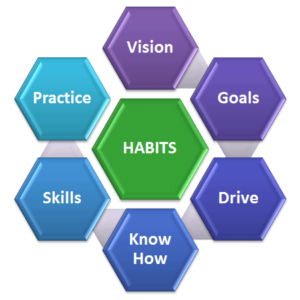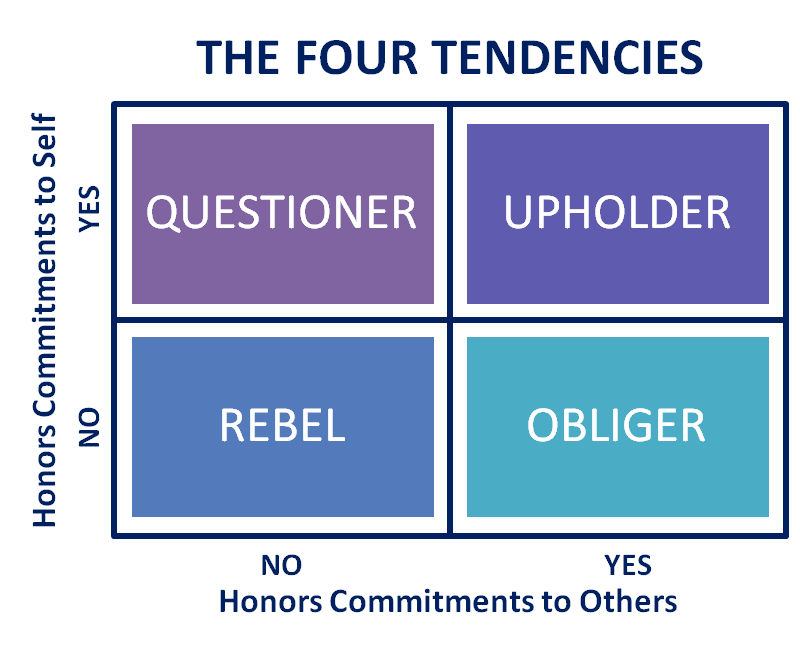“Habits are the behaviors that I want to follow forever, without decisions, without debate, no stopping, no finish lines.”
– Gretchen Rubin
 The books that I’ve been reading lately provide roadmaps for living a healthier, happier life. While it’s easy to get my head wrapped around all the good advice, it can be hard to get my body and spirit on board. Inertia and procrastination often rule the day. So I was understandably intrigued when I read the title for Gretchen Rubin’s book – Better Than Before: What I Learned About Making and Breaking Habits – to Sleep More, Quit Sugar, Procrastinate Less, and Generally Build a Happier Life.
The books that I’ve been reading lately provide roadmaps for living a healthier, happier life. While it’s easy to get my head wrapped around all the good advice, it can be hard to get my body and spirit on board. Inertia and procrastination often rule the day. So I was understandably intrigued when I read the title for Gretchen Rubin’s book – Better Than Before: What I Learned About Making and Breaking Habits – to Sleep More, Quit Sugar, Procrastinate Less, and Generally Build a Happier Life.
According to Rubin, habits are the invisible architecture of everyday life. It takes work to forge good habits. Once they’re set, it becomes second nature to integrate them into our daily routine. Moreover, a consistent practice alleviates the energy drain of exercising will power in the face of indecision. Just do it!
I can bear witness to the psychic energy drain tied to a lack of daily rituals. I’ve worked from a home office for over 20 years, so I have the freedom to tackle projects any time of the day or night. When I have a thin backlog and extended due dates, it’s easy for me to procrastinate. Unfortunately, I don’t really enjoy the “free time” because I know I should go to my office and knock the work out. It takes real effort to force myself to get rolling, yet I feel so much better when I’m fully engaged and making progress. It would be so much easier for me to simply set aside regular office hours and stick to them!
A cornerstone in habit formation lies in understanding one’s “tendency” with respect to honoring commitments. Rubin characterizes the four major personality types as follows:
- UPHOLDERS honor commitments to themselves and others.
- QUESTIONERS honor commitments to themselves and question commitments to others.
- OBLIGERS honor commitments made to others but waiver in their commitments to themselves.
- REBELS have an uneasy relationship with commitments whether made to themselves or others.
Apparently, most folks tend to be Questioners or Obligers. Questioners need to learn how to translate external commitments into something that resonates internally. Obligers (like yours truly) need to create some form of external accountability to help meet internal goals and deadlines.
Better Than Before is filled with guiding principles and recommendations to aide in habit formation. Here are ones that I found especially useful:
When we’re clear on our values, our goals, and the reasons behind the choices we make, it’s easier to institute habits to support them. Clarity calls for us to sort through and resolve conflicting goals. It requires that we get real about what we’re doing (and not doing). It asks that we take note of bad habits that we hide from others; it’s a sign that we may be out of integrity with our values and/or goals.
The best time to start a new habit is NOW. It doesn’t need to be perfectly conceived or executed. It just needs to get off the ground and put into practice one day at a time.
We manage what we monitor. If we create specific, measurable goals and create a system for tracking progress, we’re far more likely to stay the course. For the Obligers among us, the experience of following through on internal commitments increases confidence in our ability to sustain good habits.
When we schedule specific, regular times for recurring activities, it’s more likely that we’ll do them. Scheduling helps make the activities automatic, thereby eliminating the bandwidth it takes to debate whether or not to take action. For example, I’m much more consistent with exercise when I’ve given myself a “fitness appointment” on my calendar. Scheduling also helps us confront the natural limits of a 24-hour day.
Accountability increases the likelihood that we’ll meet our commitments. I’ve been experimenting with this strategy to help me achieve personal goals. For example, I’ve improved my eating habits by declaring my intention to prepare all of the recipes in health-promoting cookbooks and documenting my efforts on a website. I also engage the services of a wonderful coach with whom I have monthly check-ins. Because I’m investing time, effort, and money in this relationship, I make good use of his wise counsel and make positive changes.
Good habits are more likely to stick when they’re convenient and pleasurable. Bad habits are easier to break when taking action proves inconvenient. The harder it is to do something, the harder it is to do it impulsively.
When we anticipate and minimize temptation, we’re less likely to get derailed. This approach calls for eliminating triggers and developing plans to address stumbling blocks when they arise (e.g., schedule disruption, social pressure, loneliness, boredom). For example, a few calisthenics or a short walk works for me when I’m bored and tempted to snack. It perks me up and provides a distraction while my cravings subside. (Ah – if only I craved dark, leafy greens!)
Habits work best if the rewards are intrinsic – e.g., challenge, curiosity, skill development, mastery. Rewards should encourage and support good habits. For example, a reward for healthy eating and weight loss might be a new outfit that accentuates progress. A pint of delicious ice cream derails progress.
In conclusion, Rubin notes: “We can build our habits only on the foundation of our own nature. When we understand clearly the internal and external levers that move habits, we can make change much more effectively.”
